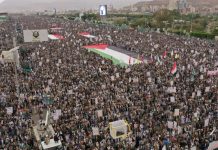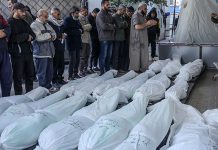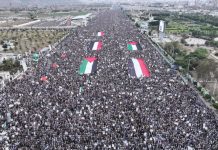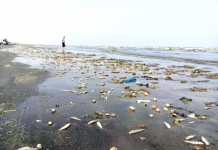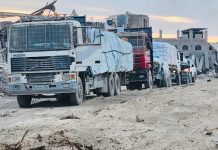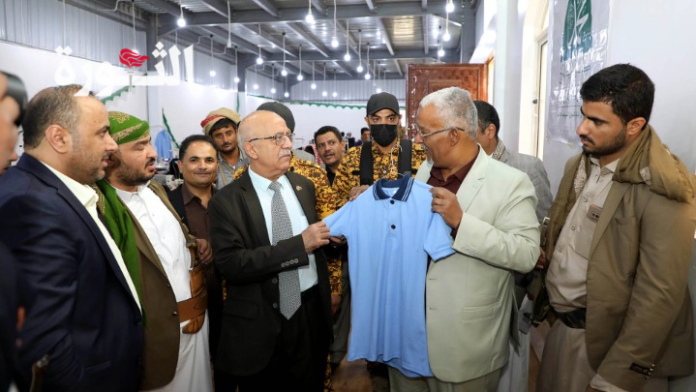Prime Minister Ahmed Ghaleb Al-Rahwi inaugurated the Eid clothing project for the year 1446 AH. This initiative is among the economic empowerment projects aimed at assisting poor families. It is carried out by the Ministry of Social Affairs and Labor, specifically the development sector, in collaboration with the General Authority for Zakat, to commemorate the Prophet’s birthday.
Al-Rahwi, accompanied by First Deputy Prime Minister Allama Muhammad Muftah and Minister of Information Hashem Sharaf Al-Din, received a briefing from Minister of Social Affairs and Labor Samir Bajaala, Chairman of the General Authority of Zakat Shamsan Abu Nashtan, Undersecretary for the Development Sector Ali Al-Razami, and Director of the National Program for Productive Families Ahmed Shuja Al-Din on the initiation of the production and training model unit project within the National Program for Productive Families and Community Development.
The program includes three production units that were provided with 200 modern sewing machines, 50 specialized machines, in addition to the process that accompanied it from training and qualifying more than 400 workers, who were empowered with the knowledge and skill ability to sew and design clothes that keep pace with market requirements, some of whom became trained.
According to the work plan of the three units, 27,000 garments aged four years and above will be produced within a month of the start of the inauguration out of a total of 120,000 pieces for the General Authority of Zakat.
During the inauguration, the Prime Minister praised the efforts made by the Ministry of Social Affairs and the Zakat Authority in bringing this project to this advanced stage for the production of clothes inside Yemen to reduce the foreign import bill and rely on the local product, which is characterized by high quality.
He praised the economic empowerment project for its importance in the path of construction, production, employment of manpower and opening the way for a wide sector in decent living. He pointed to the support of the government of change and construction for productive families and encourage them to produce clothes, local industries and other fields.


